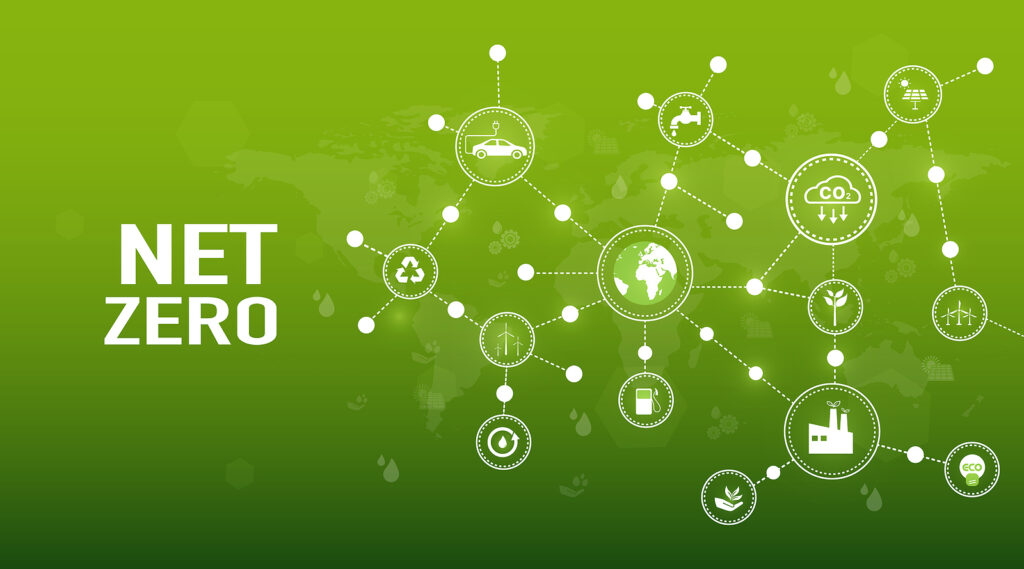The Advantages of Net Zero Energy Homes: What They Are and Why They Matter
Net Zero Energy Homes are becoming increasingly popular in the current era of rising energy costs, environmental concerns, and the desire for a more sustainable lifestyle. These homes are designed to produce as much energy as they consume, resulting in a net zero energy balance. This means that the home is energy-efficient and generates its own energy from renewable sources, such as solar panels or wind turbines. In this article, we will discuss the advantages of Net Zero Energy Homes, why they matter, and how they can help to create a more sustainable future.
What is a Net Zero Energy Home?

A Net Zero Energy Home is a building that produces as much energy as it consumes over the course of a year. This is achieved through a combination of energy-efficient design, high-quality insulation, and the use of renewable energy sources, such as solar panels or wind turbines. Net Zero Energy Homes are also designed to minimize waste and reduce their carbon footprint.
Advantages of Net Zero Energy Homes
There are several advantages to building and living in a Net Zero Energy Home. Let’s take a closer look at some of these advantages:
- Energy Savings
One of the most significant advantages of Net Zero Energy Homes is that they can save homeowners a significant amount of money on their energy bills. Since these homes are designed to be energy-efficient and generate their own energy, homeowners can significantly reduce their dependence on the electricity grid. This means that they will be able to save money on their electricity bills and reduce their overall energy consumption.
- Environmental Benefits
Net Zero Energy Homes have a positive impact on the environment. These homes are designed to be energy-efficient, which means that they use less energy than traditional homes. This results in a reduced carbon footprint and a lower impact on the environment. Additionally, since these homes generate their own energy from renewable sources, they are helping to reduce our reliance on fossil fuels, which are a major contributor to climate change.
- Improved Comfort
Net Zero Energy Homes are designed to be more comfortable and healthier to live in than traditional homes. They are built with high-quality insulation, which helps to regulate temperature and humidity levels, resulting in a more comfortable living environment. Additionally, these homes are designed to have superior air quality, which helps to reduce the risk of allergies and respiratory problems.
- Increased Resale Value
Net Zero Energy Homes are in high demand, and as such, they have a higher resale value than traditional homes. This is because these homes are more energy-efficient and have a lower overall cost of ownership, which makes them an attractive investment for potential homebuyers.
- Government Incentives
Governments around the world are increasingly offering incentives for homeowners to build and live in Net Zero Energy Homes. These incentives can take the form of tax credits, grants, or rebates, and can significantly reduce the cost of building a Net Zero Energy Home.
Why Net Zero Energy Homes Matter

Net Zero Energy Homes matter for several reasons. First and foremost, they offer a sustainable and energy-efficient alternative to traditional homes. With the growing concern about climate change and the environmental impact of our daily lives, Net Zero Energy Homes offer a way to reduce our carbon footprint and reduce our dependence on fossil fuels.
Additionally, as the cost of energy continues to rise, Net Zero Energy Homes offer a way for homeowners to save money on their energy bills. This is particularly important for low-income households, who are often the most vulnerable to rising energy costs.
Finally, Net Zero Energy Homes offer an opportunity to promote innovation and new technology. As more homeowners choose to build and live in Net Zero Energy Homes, there will be a growing demand for new and innovative energy-efficient technologies, which will help to drive the development of new and sustainable technologies
How to Build a Net Zero Energy Home
Building a Net Zero Energy Home requires careful planning and design. Here are some important considerations to keep in mind when building a Net Zero Energy Home:
- Design for Energy Efficiency
The first step in building a Net Zero Energy Home is to design it with energy efficiency in mind. This means using passive solar design principles, such as designing the home to maximize natural light and heat gain, and minimizing the amount of energy required for heating and cooling.
- Use High-Quality Insulation
High-quality insulation is essential for a Net Zero Energy Home. Insulation helps to regulate temperature and humidity levels, keeping the home comfortable and energy-efficient. Insulation should be installed throughout the entire home, including the walls, roof, and floors.
- Use Energy-Efficient Appliances and Lighting
Choosing energy-efficient appliances and lighting is also critical for a Net Zero Energy Home. Energy-efficient appliances use less energy than traditional appliances, and energy-efficient lighting can significantly reduce the amount of energy required to light the home.
- Install Renewable Energy Systems
Net Zero Energy Homes generate their own energy from renewable sources, such as solar panels or wind turbines. Installing renewable energy systems is an essential part of building a Net Zero Energy Home, and it is important to design these systems to meet the specific needs of the home.
- Minimize Waste and Water Usage
Net Zero Energy Homes are designed to minimize waste and reduce their water usage. This means using low-flow fixtures, such as toilets and showerheads, and incorporating systems for rainwater harvesting and greywater recycling.
Challenges of Building a Net Zero Energy Home
Building a Net Zero Energy Home is not without its challenges. Here are some of the main challenges that homeowners may face:
- Upfront Costs
Building a Net Zero Energy Home can be more expensive than building a traditional home. This is because of the cost of installing renewable energy systems, high-quality insulation, and other energy-efficient features.
- Technical Complexity
Building a Net Zero Energy Home requires specialized knowledge and technical expertise. This can be a challenge for homeowners who are not familiar with the technical aspects of building and designing a Net Zero Energy Home.
- Availability of Materials and Contractors
Finding the right materials and contractors can also be a challenge when building a Net Zero Energy Home. Some of the materials and systems used in Net Zero Energy Homes are not widely available, and it can be difficult to find contractors with the necessary expertise to install these systems.
Conclusion
Net Zero Energy Homes offer a sustainable and energy-efficient alternative to traditional homes. These homes are designed to produce as much energy as they consume, resulting in a net zero energy balance. The advantages of Net Zero Energy Homes include energy savings, environmental benefits, improved comfort, increased resale value, and government incentives. Building a Net Zero Energy Home requires careful planning and design, and homeowners may face challenges such as upfront costs, technical complexity, and availability of materials and contractors. Despite these challenges, Net Zero Energy Homes offer a way to promote sustainability and energy efficiency, and help to create a more sustainable future for all.
Sources:
https://www.energy.gov/eere/buildings/net-zero-energy-homes
https://greenbuildingadvisor.com/article/building-a-net-zero-house-what-you-need-to-know2
https://solarreviews.com/blog/net-zero-energy-homes/
https://www.ecosnippets.com/net-zero/challenges-of-building-a-net-zero-energy-home.html
https://letsgosolar.com/solar-panels-guide/net-zero-energy-homes/

